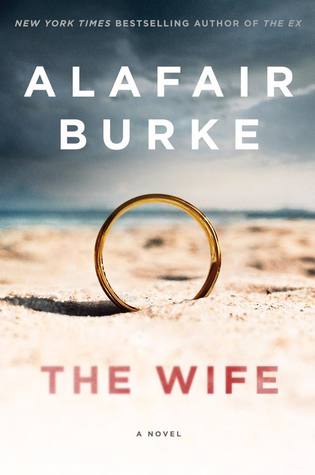Summary:
Jason Powell, a popular professor at NYU, is accused of sexual harassment and rape by two women. He insists he is innocent. Angela, his wife, believes him. But the scandal and court cases brings unwanted media attention, interrupting Angela’s carefully-maintained private life and threatening to bring her own troubled past into the spotlight once more. Then one of the women disappears. Is Jason to blame? And how far will Angela go to protect him?
Confession:
After reading the first chapter or two, I read the ending. Don’t hate me. I knew this was one of those novels that I would find instructive in my own writing. To better understand how Burke wove in clues and red herrings, I needed to know the big plot twists. And, wow, there were some doozies. If I was too intent on finding out what REALLY happened, then I would miss important hints.
That’s my justification, and I’m sticking to it.
What didn’t work for me:
This is unusual for me, but I can’t think of much that didn’t work for me, which is why I added it to my Top 5 Tuesday’s list of legal thrillers. Maybe Angela’s son Spenser sounds a little too mature for his age? But he’s supposed to be a bit quirky: his mother tells us that he didn’t speak until he was three and needed “special” kindergarten to prepare him for (what she wasn’t supposed to call) “normal” kindergarten.
What worked for me:
1. Great plot twists.
Maybe certain ones are easier to guess than others, especially if you read a lot in the “unreliable female narrator” psychological suspense genre or the “dead girl” mystery genre. I won’t spoil the twists by discussing them.
2. The strong and all-too-relevant premise.
Rich white man is accused of sexual harassment, then rape, by females. Is he guilty or not? Is his wife lying for him? What really happened in his office and in that hotel room? Was it consensual or not? Should the police investigators automatically believe the alleged victims’ accusations? The public thinks so.
In light of the #MeToo movement and all the horrible stories that have come to light, it seems likely that Jason Powell is guilty. (And as his son Spenser notes, rich white men don’t go to jail.) But Burke doesn’t make it easy for us to decide who is telling the truth, or if anyone is. Everyone in the story has their own agenda. Everyone has something to gain by achieving it, including the alleged victims. And in a he-said, she-said case, who should be believed? Is it victim-blaming or victim-shaming to doubt their story, even if doing so is necessary to prove the story is true and get a conviction?
Angela’s media personality friend Susanna gives her a monologue that sums up part of the problem:
“I’m always the one saying that when it’s he-said, she-said, I’ll pick the woman every time. Because ninety-nine percent of the time, women are telling the truth, and a hundred percent of the time, it’s grueling to come forward. Women are blamed, stigmatized, scrutinized, doubted.
(. . . )
The public’s first instinct is to disbelieve the woman, because we don’t want to admit these horrible things actually happen. So to counter that instinct, we good feminists take the position that we believe every single woman, every single time. And then the Rolling Stone article about the University of Virginia happens, and it hurts us all. So I don’t know what this woman’s angle is, Angela, but I have to think there is one. Because Jason didn’t do whatever she’s accusing him of. For once, I’m glad these cases are harder to prove than people think. (. . .) it’s going to boil down to his word against hers, and the prosecution needs proof beyond a reasonable doubt. Even if they have DNA evidence, the DA has to prove it wasn’t consensual.” (The Wife, pg. 127-8)
3.Burke’s knowledge of the legal system.
She is a former prosecutor and now teaches law. It’s obvious that she knows how the system works, how slow and tedious the process of bringing a case to court is, and when it might be futile to even try. These are things that I don’t think the general public knows. (I’ve met college-educated people who cannot differentiate between a “not-guilty” verdict and actual innocence. I’ve met people who can’t understand the concepts of due process, beyond a reasonable doubt, statute of limitations, etc.)
4. Strong characterizations.
The criminal defense attorney Olivia Randall and the police investigator Corrine Duncan especially stood out to me. They are on opposite sides, yet I found both sympathetic to a certain extent. They have to work within the constraints of the legal system and deal with people who may or may not be telling them the entire truth.

